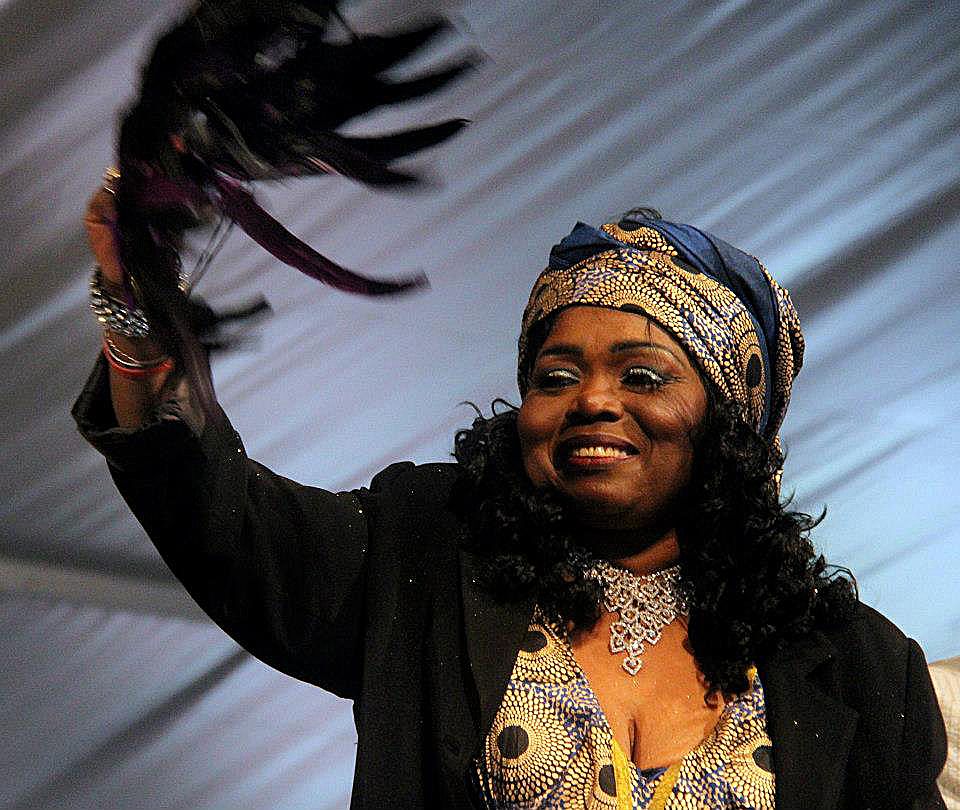The most life (and death) affirming talent contest in the world
Heart attacks, heartbreak, loss and beautiful voices in song: Silver Stars is what happens when you make American Idol for seniors.
To enter the Silver Stars talent contest, you had to be between 60 and dead. Irving Evans was struggling to find a reason to meet the criteria. The 87-year-old was in okay physical health, but he was desperately heartsick. He had lost his wife in May and his son two years prior. In his solitude, he had taken to adopting middle-aged friends - calling them 'son' and telling them 'I can be your dad if you want'. His voice cracked as he told his audience how lonely he was.
Evans was there to sing Old Man River. He dedicated the song to his wife and son, and rasped out its famous refrain - 'I'm tired of living and scared of dying' - like he was singing it straight to them. But he was also a born showman. Before they could usher him offstage, he started belting out God Bless America.
Evans and his fellow Silver Stars contestants were all proud Americans, and they were sick. Many of them had lost family members, teetered near the precipice of death or had their greatest ambitions crushed by injury or misfortune. They sang and danced with the support of pacemakers, painkillers, crutches and chemotherapy. Though their maladies were many and varied, four things united them on stage for the competition’s final at the Ryman Theatre in Nashville one afternoon in mid-October: Their age, Jesus, defiant patriotism and the lure of $7500 in cold hard cash.
To make the final, you had to be good. But if you wanted to win, it helped to have a sad story. The performances were a parade of hardship and hard luck. Sam Cooper suffered a near-fatal heart attack a few months before his bluesy, madcap, strangely sexual performance. Patricia Reinbott’s blossoming, Grammy-nominated country music career was cut short first by a car accident and again decades later by a malignant lump near her vocal folds. Last year’s winner, Hazel Minnick, had been living with Alzheimers for 16 years. This year she was also suffering from a dislocated hip. Her curtain-raising ballroom dancing performance ended with her doing the splits on the floor, then being helped up by two men.
Even the show’s host and founder was terribly ill. Famed Nashville drummer Billy Block had been diagnosed with stage four melanoma earlier in the year. It had spread to his liver and lungs. He arrived on stage just weeks after being told he was in remission. Despite that, he played madcap drums for the house backing band, standing up and lunging into fills, grinning ear to ear.
Officially, they were all there because Cigna Healthspring - a gigantic, notoriously evil insurance company - had put up the venue hire fee and $7500 prize package. But Jesus got most of the credit. He and his father, God, had given second chances, healed, fulfilled dreams and blessed America. Many of the performers believed they would have been dead without divine intervention. Dead, or still washed up on the wrong side of a dream. Instead they were walking on stage at the Ryman at the tail end of long careers trying to get there. For one afternoon, they were Johnny, June, Dolly, Willie and Waylon: drowning in stage lights and applause. Young and healthy again; unmarked by loss, just getting started.
Evans came third, perhaps losing marks for his runsheet-frying God Bless America rendition. He placed behind a pair of lycra-clad interpretive dancers. Both acts lost to the only Silver Star that shone on her own. Ruby Wilson didn’t compete that day to pretend to be anyone else. She was already the Queen of Beale Street. The 66-year-old earned her title through decades of performances at the legendary strip of blues clubs in Memphis. Her career should have ended five years ago, when she suffered a stroke in a hotel room on tour. It took 22 hours to find her. By then she couldn’t walk or talk. After that the milestones came slowly: three months before she could move a big toe, a year before she could get back on stage.
We knew this because she told us, leaning on a cane and bellowing as her band played through the chord progression of At Last by Etta James. She blasted out her winning performance, then handed over to her sole backing singer a few minutes from the end. As he crescendoed, Ruby started yelling again: “That’s my son.” Over and over. “That's my boy.” And finally, as if it in conclusion: “He’s a twin!” For a few minutes there wasn’t a tinge of sickness or sorrow. Just joyful noise.

